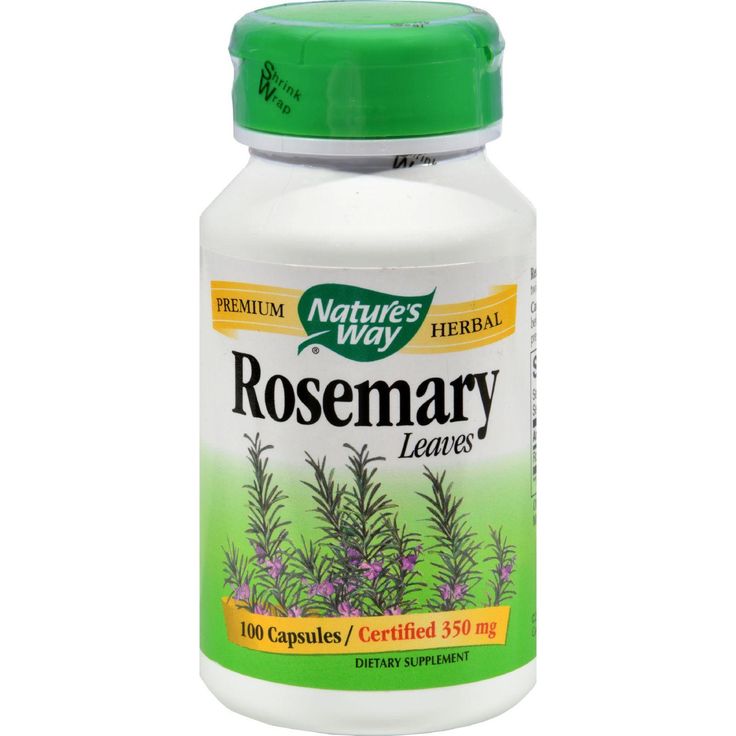Rosemary (Rosmarinus officinalis) is a fragrant and flavorful herb that has been treasured for its culinary and medicinal properties for centuries. Beyond its culinary uses, rosemary has a long history of therapeutic applications, particularly in traditional medicine systems such as traditional European herbalism and Ayurveda. Rosemary supplements, derived from the leaves and sometimes the flowering tops of the rosemary plant, offer a plethora of health benefits that have gained recognition in both traditional and modern medicine. In this comprehensive guide, we explore the multifaceted advantages of rosemary supplements, drawing upon historical use and contemporary scientific research.
Historical and Cultural Significance
Rosemary has been esteemed since ancient times for its symbolic, culinary, and medicinal significance. The ancient Greeks and Romans associated rosemary with memory and remembrance, using it in ceremonies, rituals, and funerals. In medieval Europe, rosemary was believed to ward off evil spirits and promote good health. Herbalists throughout history have utilized rosemary for its diverse therapeutic properties, including its ability to improve digestion, stimulate circulation, and enhance cognitive function. Today, rosemary remains a beloved herb in cuisines worldwide and continues to be valued for its medicinal benefits.
Cognitive Enhancement
One of the most celebrated benefits of rosemary supplements is their potential to enhance cognitive function and memory. Rosemary contains compounds such as rosmarinic acid, carnosic acid, and caffeic acid, which have been shown to have neuroprotective and cognitive-enhancing effects. Research suggests that rosemary supplements may help improve memory, concentration, and mental clarity. Inhalation of rosemary essential oil or ingestion of rosemary extract may stimulate neurotransmitter activity, enhance cerebral blood flow, and promote cognitive resilience, particularly in aging adults.
Digestive Health
Rosemary supplements may offer benefits for digestive health and gastrointestinal function. Rosemary contains volatile oils such as camphor, cineole, and pinene, which have carminative, antispasmodic, and anti-inflammatory properties. Rosemary supplements may help alleviate symptoms of indigestion, bloating, and gas. Additionally, rosemary’s bitter principles stimulate bile production, promote liver detoxification, and support overall digestive function. Regular consumption of rosemary supplements or inclusion of rosemary in culinary preparations may help improve digestion and promote gastrointestinal well-being.
Anti-inflammatory and Antioxidant Effects
Rosemary supplements exhibit potent anti-inflammatory and antioxidant effects, which contribute to their diverse therapeutic benefits. Rosemary contains phytochemicals such as flavonoids, phenolic acids, and diterpenes, which help neutralize free radicals, reduce oxidative stress, and inhibit inflammatory pathways. Rosemary supplements may help alleviate inflammation associated with chronic conditions such as arthritis, cardiovascular disease, and neurodegenerative disorders. Additionally, rosemary’s antioxidant properties help protect cells from oxidative damage and support overall health and vitality.
Immune Modulation
Rosemary supplements may help modulate the immune system and enhance immune function. Rosemary contains bioactive compounds such as rosmarinic acid and caffeic acid, which have been shown to have immunomodulatory effects. Rosemary supplements may help stimulate the activity of immune cells such as lymphocytes, macrophages, and natural killer (NK) cells, enhancing the body’s defense against infections and pathogens. Additionally, rosemary’s antimicrobial properties help inhibit the growth of bacteria, viruses, and fungi, supporting overall immune health.
Cardiovascular Support
Rosemary supplements may offer benefits for cardiovascular health and function. Rosemary contains compounds that help regulate blood pressure, cholesterol levels, and blood sugar levels. Rosemary’s antioxidant and anti-inflammatory properties help protect blood vessels from oxidative damage, reduce inflammation, and improve circulation. Regular consumption of rosemary supplements may help lower blood pressure, reduce LDL cholesterol levels, and prevent the development of atherosclerosis and cardiovascular disease. Additionally, rosemary’s vasodilatory effects may help improve blood flow and promote overall cardiovascular health.
Respiratory Health
Rosemary supplements may have respiratory benefits due to their expectorant, bronchodilator, and antimicrobial properties. Rosemary contains volatile oils such as cineole and camphor, which help relieve congestion, reduce inflammation, and promote bronchial relaxation. Rosemary supplements may help alleviate symptoms of respiratory conditions such as asthma, bronchitis, and sinusitis. Additionally, inhaling rosemary essential oil or consuming rosemary extract may help clear nasal passages, soothe irritated airways, and support respiratory comfort and function.
Skin and Hair Health
Rosemary supplements may promote skin and hair health due to their antioxidant, anti-inflammatory, and antimicrobial properties. Rosemary contains compounds such as carnosic acid and rosmarinic acid, which help protect skin cells from oxidative damage, reduce inflammation, and inhibit the growth of acne-causing bacteria. Rosemary supplements may help improve skin tone, reduce blemishes, and promote a clear, radiant complexion. Additionally, rosemary’s stimulating effects on circulation may help nourish hair follicles, promote hair growth, and prevent hair loss.
Usage and Dosage
Rosemary supplements are available in various forms, including capsules, tablets, tinctures, teas, and essential oils. The appropriate dosage may vary depending on factors such as the specific health concern being addressed, the concentration of active ingredients in the supplement, and individual factors such as age, weight, and overall health status. It is advisable to follow the manufacturer’s instructions or consult with a healthcare professional to determine the suitable dosage for optimal results.
Safety Considerations
Rosemary supplements are generally considered safe for most people when used as directed. However, some individuals may experience allergic reactions or skin sensitivities to rosemary. Pregnant and breastfeeding women should consult a healthcare professional before using rosemary supplements. Additionally, individuals with certain medical conditions or taking medications should use rosemary supplements cautiously and under the guidance of a healthcare provider.
Conclusion
Rosemary supplements offer a wide range of potential health benefits, from enhancing cognitive function and promoting digestive health to reducing inflammation, supporting immune function, and promoting cardiovascular health. Rooted in centuries of traditional use and supported by modern scientific research, rosemary continues to be valued for its therapeutic properties and culinary versatility. However, it is essential to use rosemary supplements judiciously and under the guidance of a healthcare professional, especially for individuals with pre-existing medical conditions or those taking medications. With careful use, rosemary supplements may serve as a valuable addition to a holistic approach to health and well-being.

